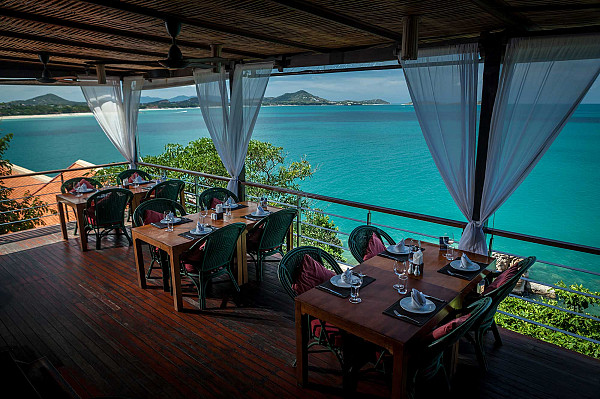
Uncover the secrets to opening a successful restaurant on Koh Samui. From funding to finding the perfect spot, this guide is your recipe for success in Thailand’s culinary scene.
Introduction:
Koh Samui, with its stunning beaches, lush landscapes, and vibrant expat community, is more than just a tourist destination—it's a dream location for expat entrepreneurs looking to dive into the restaurant business. The island's unique blend of international visitors and resident expats creates a diverse culinary landscape ripe with opportunities. But before you start envisioning your beachfront café or a cozy Thai fusion bistro, there are several key factors you'll need to consider. From navigating start-up costs to understanding local regulations, this guide will walk you through the essentials of launching your restaurant venture in Koh Samui.
Ready to bring your culinary vision to life on this tropical paradise? Let’s get into the meat of the matter.
The Financial Feast: Start-up Capital on Koh Samui
The amount of capital you'll need to open a restaurant on Koh Samui can vary greatly depending on your concept, location, and size. Generally, you should be prepared for start-up costs ranging from 500,000 THB (about 15,000 USD) for a modest establishment to upwards of 3 million THB (around 90,000 USD) for something more ambitious. This budget should cover key expenses such as leasing space, renovations, kitchen equipment, initial inventory, and necessary permits and licenses. It's also prudent to have a financial cushion for the first few months of operation as you build your customer base.
A Buffet of Opportunities: Concept and Customer Base
The island's diverse international community and steady stream of tourists offer a wide array of culinary gaps just waiting to be filled. Whether you’re passionate about bringing authentic Italian cuisine to the beachside or introducing a vegan twist to Thai favorites, understanding your target audience is crucial. Conduct market research to identify underserved niches or areas with high demand but low supply. Remember, the key to success is not just in the food but in creating an experience that resonates with your customers.
Location, Location, Location: Picking the Perfect Spot
Koh Samui is dotted with potential hotspots for your restaurant. Areas like Chaweng and Lamai are bustling with tourists seeking dining experiences, offering high foot traffic but also higher rent and competition. Quieter areas like Bophut’s Fisherman’s Village or Maenam provide a more laid-back atmosphere, appealing to families and couples. Consider your restaurant's concept and who your ideal customers are when choosing your location. Waterfront properties are highly coveted but come at a premium, so weigh the benefits of the view against the cost.
The Recipe for Legal Success: Documentation and Regulations
Navigating the legal landscape is a critical step in setting up your restaurant. Expats must obtain a business visa and the correct licenses, which may include a food license, alcohol license, and business operation license. Partnering with a Thai national can be beneficial, as businesses must be majority Thai-owned unless you opt for a BOI (Board of Investment) company, which allows for foreign ownership. It's essential to consult with a local lawyer to ensure you comply with all local laws and regulations.
Cultural Ingredients: Adapting and Thriving in Samui
Understanding and integrating into the local culture is vital for any expat business owner. This includes everything from negotiating with landlords and suppliers to managing your Thai staff and engaging with the community. Respect, patience, and a willingness to learn and adapt are your best tools for success. Embrace the concept of «sanuk,» the Thai principle of seeking joy in whatever you do, to truly connect with the heart of Koh Samui.
Frequently Asked Questions:
Q: Is it necessary to speak Thai to run a business in Koh Samui?
- A: While not mandatory, having a basic understanding of Thai can greatly help with daily operations and in building relationships with staff and locals.
Q: What are some of the biggest challenges I might face?
- A: Navigating the legal system, cultural differences, and the seasonal nature of tourism on the island can be challenging.
Q: Can I own the property where I open my restaurant?
- A: Foreigners cannot own land in Thailand but can own buildings or enter into long-term leases (usually up to 30 years).
In Conclusion: Your Slice of Paradise Awaits
Opening a restaurant on Koh Samui offers an exciting opportunity to blend your passion for food with the island's enchanting lifestyle. The journey requires a significant upfront investment, a deep understanding of the local market and culture, and a clear vision for your culinary venture. But with the right preparation and dedication, your restaurant can become a beloved part of Samui's vibrant dining scene.
Embrace the challenge, and you'll find that running a restaurant in Koh Samui isn't just about serving great food—it's about creating a space where memories are made, and cultures converge. Here's to your success in this tropical culinary adventure!





